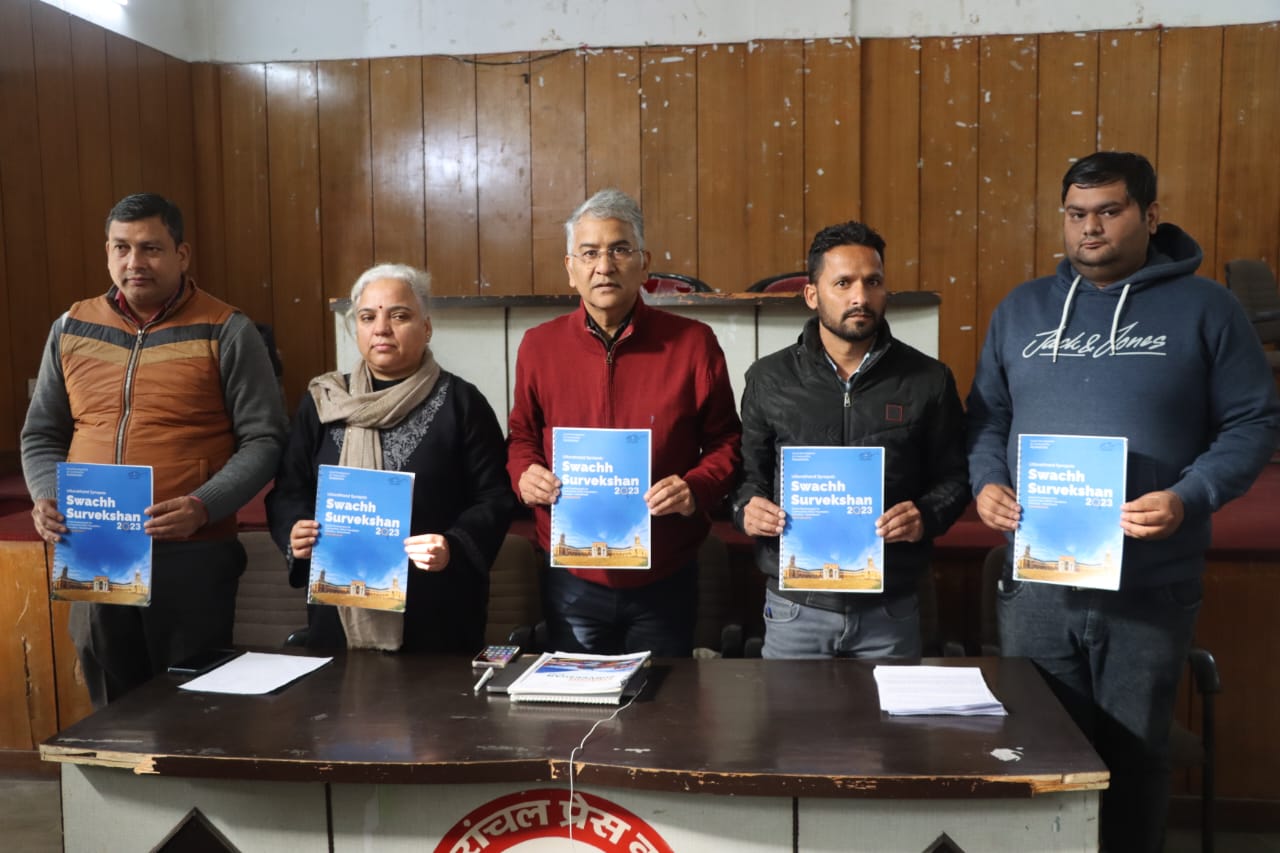PrashantNews
The Dehradun-based SDC Foundation on Friday released a new report analyzing Uttarakhand’s performance in the Swachh Survekshan 2023 which exposes the widespread neglect in the state’s cleanliness management.
The 34-page report also offers 10 key recommendations for bringing about large-scale improvements, SDC Foundation founder Anoop Nautiyal said. The Foundation has previously released similar reports on Swachhta Survekshan cleanliness surveys in Uttarakhand.
The recent report reveals that Swachh Survekshan 2023 included 446 cities with populations between 1 lakh and 10 lakh across the country. Eight cities from Uttarakhand were part of this category. Among them, Dehradun was the only city to make it into the top 100 cleanest cities in the country, ranking 68th. However, the remaining seven cities performed poorly, with Rudrapur ranking at the bottom of the list from Uttarakhand at 417th place.
As per the report, among 80 ULB in Uttarakhand with populations under 1 lakh, 64 (80%) were placed in the bottom quarter of North India’s dirtiest cities.
In the category of 50,000 to 1 lakh population, Uttarakhand had 6 ULB out of 98 in North India. All the ULBs from Uttarakhand were ranked at the bottom. The most disappointing result came from Khatima, the Chief Minister Pushkar Singh Dhami’s home town, which ranked 98th, making it the dirtiest city in this category across North India.
Among the 200 ULB in North India with populations between 25,000 and 50,000, 10 from Uttarakhand were included. Six of these ranked in the dirtiest quarter, with Sitarganj being ranked 199th, the second dirtiest city in this category across North India.
Among 282 ULB in North India with populations between 15,000 and 25,000, 10 from Uttarakhand were included. Nine of them were in the bottom quarter, with Selakui ranked 280th.
Among the 441 ULB in North India with populations under 15,000, 54 from Uttarakhand were included. Of these, 43 ranked in the dirtiest quarter. Three of the dirtiest cities in this category were from Uttarakhand with Chaukhutia at 441st, Sultanpur at 440th and Dineshpur at 439th rank.
The report provides 10 key recommendations to improve the performance of Uttarakhand’s cities and towns in the domain of swachhta across the state.
The most vital recommendation is the formation of a Waste Management Commission, similar to other state commissions, to manage all six types of waste—solid waste, plastic waste, e-waste, biomedical waste, construction waste, and hazardous waste. The commission would be responsible for developing and implementing holistic plans for waste management in the state cutting across urban, rural, forest and all other areas.
The report also emphasizes the need for a special session in the state legislature to raise awareness and train ministers, legislators, and officials about cleanliness initiatives. The session should focus on addressing climate change, environmental issues, and cleanliness in the state. It was said that given the apathy and callousness of the political and bureaucratic class, there is an acute need for Jan Pratinidhi Andolan in Uttarakhand.
Further, the report advocates for various actions, such as waste segregation at the source, training programs for capacity building, involving waste pickers in cleanliness efforts, and launching public campaigns to encourage citizen participation in cleanliness programs.
Releasing the report, Nautiyal called upon all political parties to present detailed action plans through their respective manifestos for the improvement of waste management situations in all cities and towns in Uttarakhand for the upcoming ULB elections.
He stressed upon all the mayoral candidates, chairman candidates and councilor candidates of Uttarakhand state to necessarily share their action plan for the improvement of Swachh Survekshan scores and the waste management ground reality in their cities and wards during the campaign.
He said that in the coming days, in view of the ULB elections across the state, the issue of cleanliness will be continuously raised before the people of the state. He appealed for cooperation from all the social organizations and media of the state in the cleanliness mission.
The press conference was attended by SDC Foundation team members Prerna Raturi, Dinesh Semwal, Pyare Lal, and Praveen Upreti. The Foundation expressed gratitude to the report’s contributors, Rishabh Srivastava and Amisha Rampal, for their support in preparing the document.

